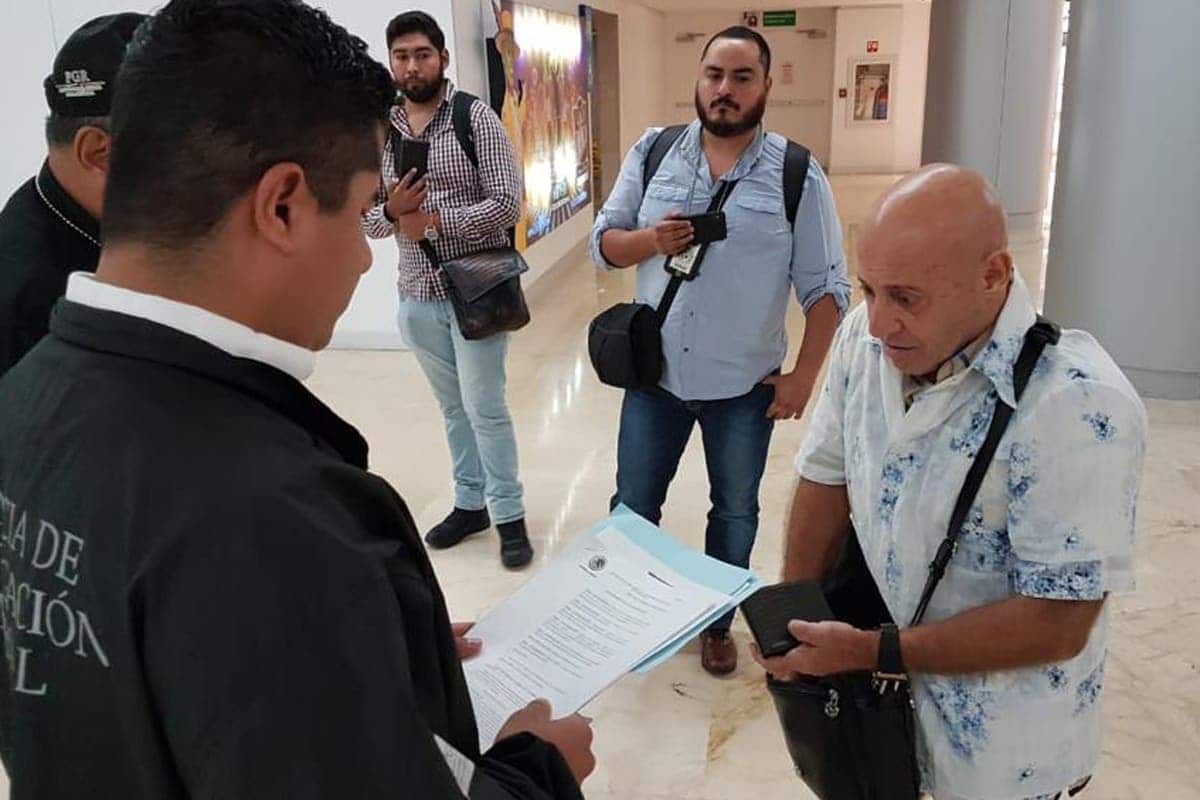An Argentine former intelligence agent was detained in Mexico, accused of leading a powerful transnational sex trafficking ring. The arrest revealed the high-level of sophistication and elite collusion one of the most profitable illegal economies in the world requires.
Raúl Martins, a former agent with the now-defunct State Intelligence Secretary (Secretaría de Inteligencia del Estado – SIDE), was arrested in Cancún, Mexico on October 3, Clarín reported. He was trying to board a flight to neighboring Belize.
Martins, who holds dual Argentine-Mexican nationality, is accused in Argentina of leading a crime organization, sexually exploiting women in a number of nightclubs he owned in Buenos Aires in the 1990s and laundering money.
SEE ALSO: Argentina News and Profiles
Martins is a renowned and well-connected criminal figure in Argentina, where he lived and operated his businesses for decades.
He built his empire by extorting influential politicians and businesspeople with compromising videos recorded in his nightclubs.
After an investigation was opened against him, he moved to Mexico in 2003. There, he owns a number of bars where he is accused of having exploited women for sex work.
Martin’s organization tricked women by offering them jobs as models or receptionists in Mexico and paying for their tickets to relocate there. Once in Mexico, the women were forced into sex work to pay for their debts.
It is estimated that his organization made as much as $1 million a year in the bars and nightclubs it managed in Buenos Aires and up to $2 million for those in Mexico, according to a report published by Clarín.
InSight Crime Analysis
Arresting Raúl Martins is a big win for authorities in Argentina and shows that authorities have taken some positive steps in the fight against sex trafficking despite facing increasingly sophisticated organizations.
Human trafficking is believed to be the fourth most lucrative activity for criminal groups, after counterfeiting, drug trafficking and illegal logging, according to a study by the organization Global Financial Integrity.
But the secretive nature of the crime makes quantifying the number of victims particularly difficult. However, a recent report from the United Nations Office on Drugs and Crime (UNODC) found that, globally, countries are detecting more victims and convicting more traffickers.
This could either be the result of an increased capacity to identify victims or of an increased number of victims.
In Argentina, the conviction rate for these crimes rose from 52 percent in 2014 to 74 percent in 2017, although total prosecutions dropped from 138 cases to just 51, according to the UNODC report.
Coupled with a number of robust legal protections for victims, better data collection and improved tools for prosecutors, this helped Argentina better its rating in the 2018 Trafficking in Persons Report by the US State Department.
SEE ALSO: Human Trafficking Conviction Rates on the Rise in Latin America
The arrest of Raúl Martins is seen as a result of this progress. However, the fact that his organization continues to operate in Argentina, possibly aided by a complex network of high-level connections, goes to show the enormity of the challenge which remains ahead.
Alejandra Mangano, the lead prosecutor at Argentina’s Attorney’s Office for People Trafficking and Exploitation (Procuraduría de Trata y Explotación de Personas – PROTEX), told InSight Crime that since the anti-trafficking law was passed in 2008, criminal organizations adapted into more complex operations.
“Investigations adapted and organizations adapted. We have been able to identify the economic beneficiaries of the organizations, the links with the security forces, the doctors who treated the women. We have a clearer picture of how the system works,” Alejandra Mangano explained.
But as in the case of drug trafficking, increased and better prosecutions have also moved crime organizations further underground.
VerónicaToller, a journalist and expert on human trafficking, told InSight Crime that while the improvements are welcomed, trafficking is becoming harder to identify.
“With brothels closing down, women were moved underground, to small private apartments, where they are still being sexually exploited by these organizations. In some cases, they are also forced to sell drugs to their ‘clients’ ”, Toller explained.
Investigators are finding other similarities between sex trafficking and drug trafficking organizations, including the use of similar routes.
“We have identified sex trafficking routes from the provinces in the north of Argentina, to the centre of the country, to Buenos Aires and to the south. In Patagonia, there is a very high demand of women for sex work. These are some of the same routes that are being used for drug trafficking,” Alejandra Mangano explained.

